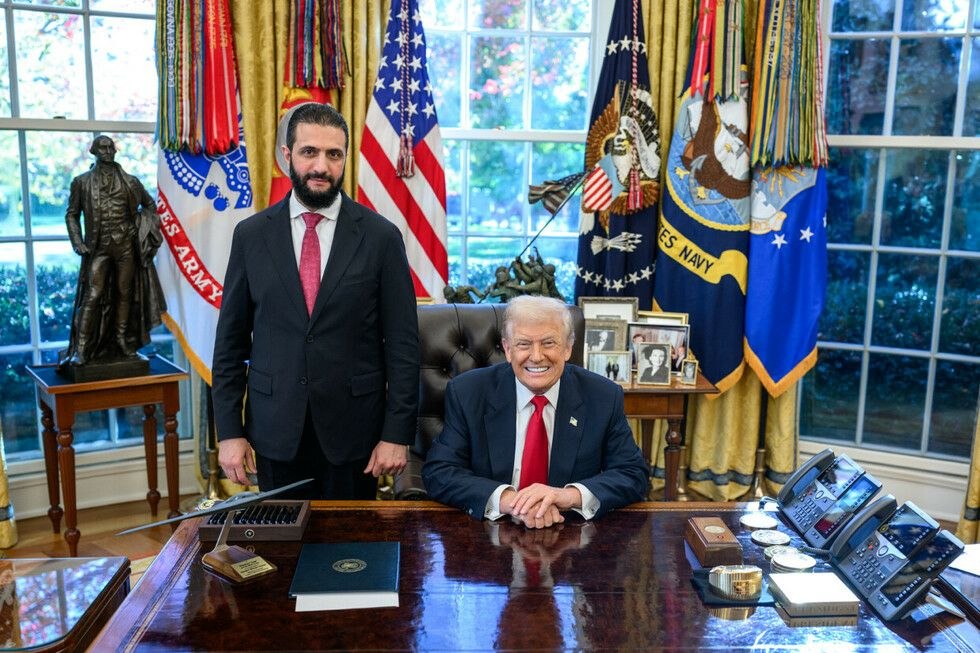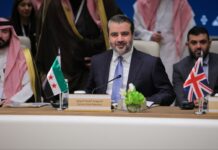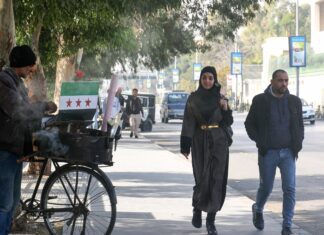
In a historic event, Syrian President Ahmad al-Sharaa met with US President Donald Trump at the White House on Monday, October 10. The closed-door meeting, which lasted over an hour, was the first-ever visit by a Syrian head of state to the Oval Office since Syria gained independence in 1946. Both sides described the talks as “constructive” and “forward-looking,” signaling an emerging partnership after years of isolation.
The visit came less than a year after a Sharaa-led coalition toppled Assad’s regime. “Syria entered a new era after the previous regime,” Sharaa said in an interview with Fox News following the meeting. “We discussed the future and the lifting of sanctions with President Trump. We explored opportunities for investment in Syria so that the country is not viewed as a security threat, but rather as a strategic ally.”
Economic Cooperation and Sanctions Relief
According to a joint statement from both governments, discussions centered on economic reconstruction, investment, and regional security. The US Treasury and State Departments confirmed the suspension of sanctions under the Caesar Act for 180 days, a move opening the door to renewed trade and aid flows. Most US civilian goods, software, and technology can now be exported to Syria without a license, though restrictions remain on transactions involving Russia and Iran.
Trump praised Sharaa’s leadership and Syria’s resilience during a press briefing. “He’s a very strong leader, and I get along with him,” Trump said. “We’ll do everything we can to make Syria successful.” The president added that further announcements on Syria are expected soon, noting that “Syria is a big part of the Middle East and an important part.”
Political Coordination and Regional Security
During the talks, Syria signed a declaration of political cooperation with the Global Coalition to Defeat ISIS, reaffirming its commitment to regional stability. Syrian Information Minister Hamza al-Mustafa emphasized that the agreement was political and excluded any military dimensions.
Trump also endorsed efforts to pursue a future security arrangement involving Israel and Syria. “We’re working with Israel on getting along with Syria and with everybody, and that’s working amazingly,” he said. However, Sharaa ruled out direct negotiations with Israel at this stage, citing the ongoing occupation of the Golan Heights. “Perhaps the US could play a mediating role in the future,” he told Fox News, “but currently [the Abraham Accords] are not on the table.”
Diplomatic Renewal and Transitional Justice
Another significant outcome was the US decision to reopen the Syrian Embassy in Washington after over a decade of closure. Foreign Minister Asaad al-Shaibani held a follow-up meeting with Secretary of State Marco Rubio to outline an implementation plan for the agreements reached.
Sharaa said Syria’s visit to Washington “ushers the country into a new phase of international relations.” He also confirmed the establishment of an independent national body for transitional justice to hold accountable those involved in war crimes, including members of the former regime.
For Trump, the meeting demonstrated a pragmatic approach to Syria’s reintegration into the global order. “You can expect some announcements on Syria,” he said. “We want to see Syria become a very successful country, and I think this leader can do it.”








